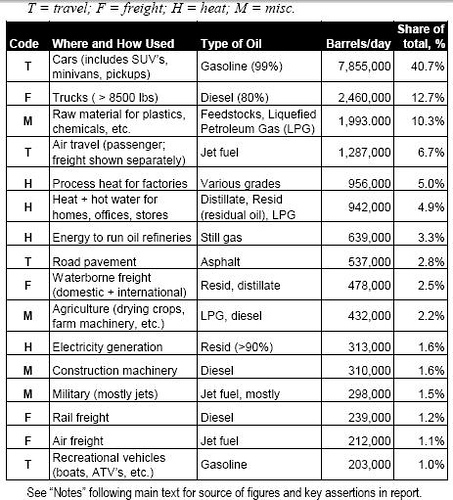Considering how to reduce oil consumption ? Know how it is used now
This is from a pdf with 5% and 10% oil savings plans FURTHER READINGShort, mid and long term energy Brian WangBrian Wang is a Futurist Thought Leader and a popular Science blogger with 1 million readers per month. His blog Nextbigfuture.com is ranked #1 Science News Blog. It covers many disruptive technology and trends including …

